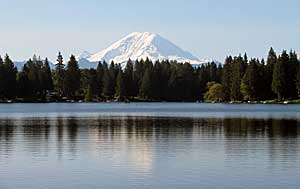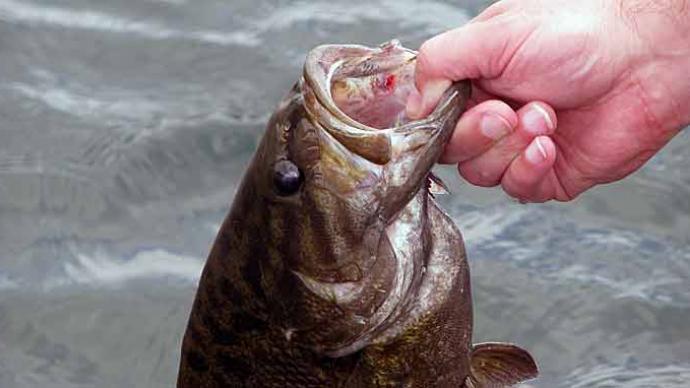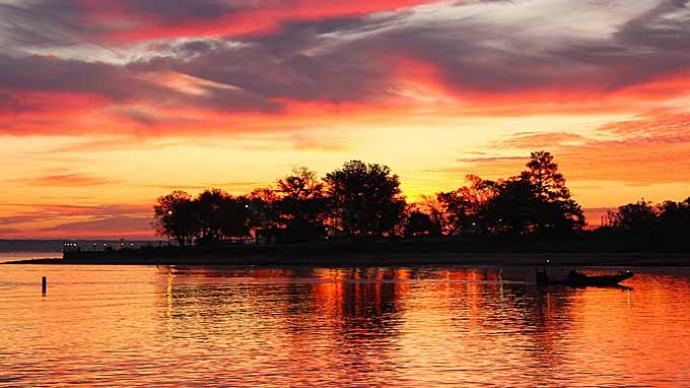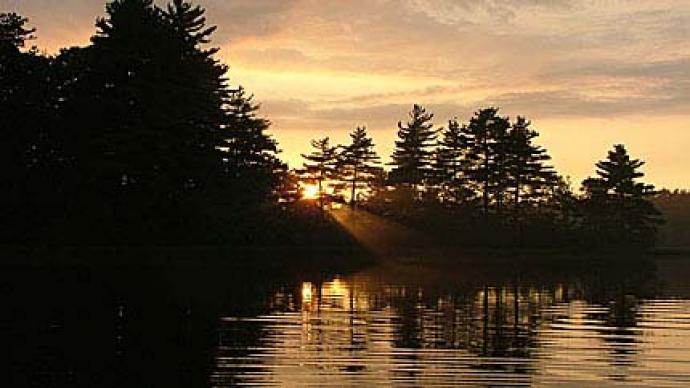
I have always been convinced that finding some of the best fishing is challenging for most people. Hidden little lakes away from the general flow of traffic are like gems in the forest. You may drive within a few miles of them without ever knowing they are there, but when you do happen across one of them, you may have found a treasure you will want to keep to yourself.
I've said it before and will repeat it: small lakes are big attractions to those who like people but wish everyone would stay home the day we choose to go fishing.
There are thousands of small lakes scattered across the country. Most range in size from five to 10 acres to 200 acres. I prefer the smaller lakes, where it takes a float tube or one-man or two-person boat to tackle and where boats with large outboards are prohibited.
Small city-owned lakes are more numerous than you might imagine. All it takes to find them is some time on your hands for adventure and a willingness to stop and ask questions of the local folks about fishing opportunities near their hometowns.
A lot of lakes carry names given to them by a nearby community or town, so some you should be able to find with little more than a state road map. Other lakes get their names from creeks and streams. You often don't have to grab a state road map or drive into the country to look for them. Their names and information about them are often as close as a relative or someone you work with.
Fortunately for those who like to discover these old lakes, people come from all walks of life. A fellow worker or an acquaintance often can think back to their childhood days and recall a place they once fished as a kid. And that place may still be there, just waiting to be discovered.
During the winter, many of these small lakes are exceptionally clear, even though their average depths are shallow compared to larger reservoirs. As a result, small lures and long casts on light line often produce the best results.
Approaching a small lake, such as one of 40 acres or less, requires the same patience and quietness for the angler as it does a hunter trying to stalk within close range of deer in a field of winter wheat.
A hunter wouldn't drive right to the edge of a field, slam his pickup door or tailgate and then trudge noisily into the woods with the expectation of finding deer in the field. Neither should an angler expect to have a great day of fishing after banging his gear around noisily as he slides a small boat into the water of a small lake and turns his trolling motor on as high as it will go through the moss and stumps.
Catching fish is one of many reasons you should seek out these little-known honey holes. The enjoyment of spending a day on the water away from the crowds found on more popular lakes is enough reason to go to the trouble of finding a lake few people know about.
And, if you have a young child or other inexperienced anglers who you want to teach the basics of fishing, you won't find a better place to hold that person's full attention than on a lake where there are no other boats or other distractions.
A small city or county-owned lake is something to cherish and appreciate, just as it is with a public camping area or park, and it should be treated as such. At the day's end, all litter created by you and your fishing friends should be carried away or put in a dumpster or trash barrel if one is available. I have found that it is best to carry home everything you brought with you, including trash. Dumpsters and trash barrels tend to become full, especially in remote areas, and there is nothing more unsightly than a lot of trash on the ground.
You can have a float tube or small boat to fish these little lakes. A pair of waders or waterproof boots is all you need for bank or wade fishing. Remember to use caution at all times, whether wading, bank fishing, or fishing from a boat or float tube. Help, if needed, maybe several miles away.



